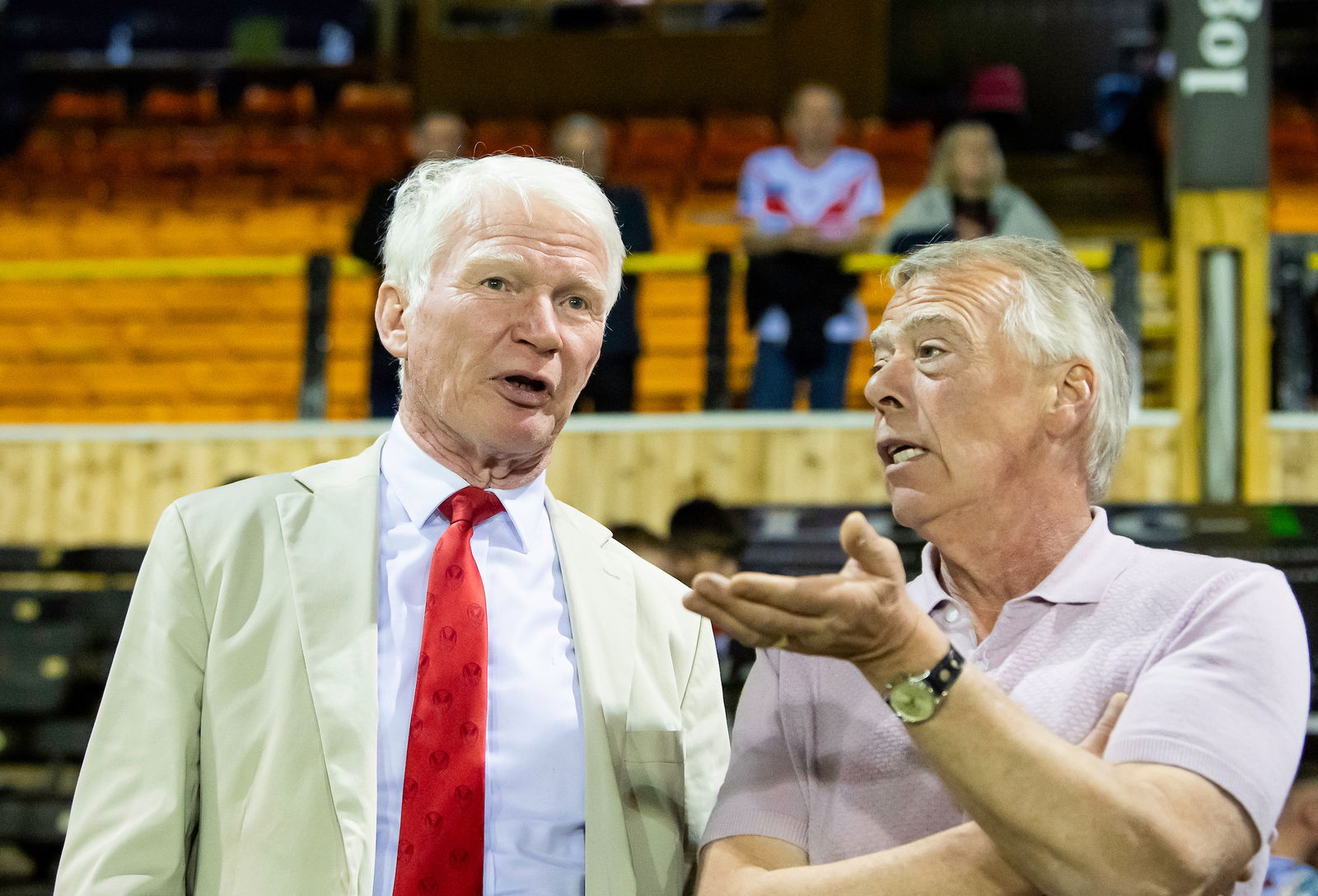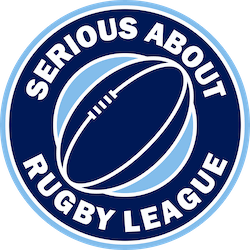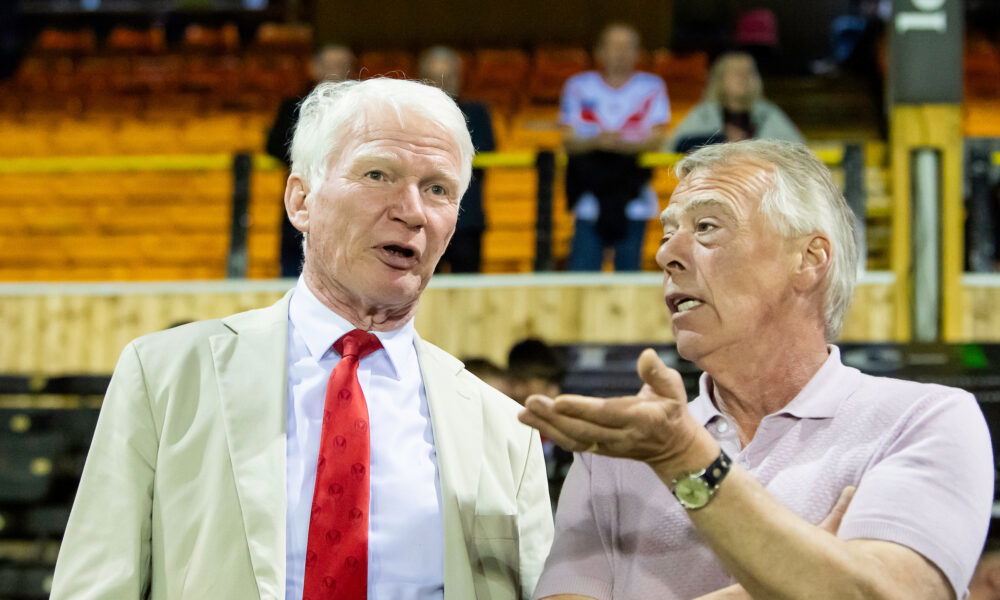
St Helens chairman Eamonn McManus has justified Super League expanding to 14 teams and also made a major admission on future central funding, conceding that current clubs may take a reduction in order to fund the 13th and 14th teams.
That’s a change in tone from the previous understanding that the existing clubs, or the clubs who rank one through 12 on the IMG rankings and earn their spot in Super League, would not have their central funding affected.
Instead, it was believed that the 13th and 14th teams, who will apply to join the competition, would either take reduced central funding or potentially even none at all. Leigh Leopards chairman Derek Beaumont previously explained his expectation that clubs would get more than 66% of the full funding, which is what Leigh got when parachuted in to replace Toronto in 2021.
However, that was believed to be coming at no expense to existing clubs but St Helens chairman Eamonn McManus has said clubs will “bear” a “mild dilution”.
Speaking at half time of the BBC’s coverage of St Helens versus Huddersfield, a game where the Red Vee ran rampant and yet more questions were asked about the quality in the competition and if we can really afford to add two more teams, McManus justified that expansion and spoke on some of the finer details.
Super League clubs could ‘bear’ reduction in central funding
Worryingly, those finer details have not yet been determined, as he admitted that the central funding figures for 2026 are unconfirmed.
Asked about the situation, he said: “That’s not been finalised. The formula of distribution for 2026, if this happens, has not yet been determined.
“You can’t look at it in simple arithmetic formula. This is about the growth of revenues, growth of profile and there’s a much bigger picture. If there’s a mild dilution in central distribution to existing clubs, we’ll bear it. Overall, we think this is a great thing for the sport.”
In respect to his ‘if this happens’ comment, McManus revealed that the entry standards for the 13th and 14th teams will be very tough with Super League clubs understandably fearful of taking on another financially troubled team following this year’s Salford saga.
He explained: “The standards that are going to be set for the entrance of clubs will be pretty stringent and if two additional clubs don’t meet those standards then they won’t be chosen.”
As for why expansion should happen, the St Helens man highlight ‘growth of the sport’ as the main reason as he argued that it had been a well thought-out process before sarcastically sniping at loop fixtures.
McManus said: “We are looking for growth of the sport. We’ve talked about it for so long and it’s something that we’ve not just jumped to that conclusion. We’ve reviewed this carefully and analysed over a period of time.
“We’re looking to grow investment in the sport and grow it’s geographic footprint, grow it’s profile and also coming up with this revolutionary concept of playing a game at home and a game away each year. Other sports should try it.”
St Helens chair backs 2026 expansion
Despite those reasons, many still argue that it is too soon. Of the three current Super League clubs who did not vote in favour of expansion for 2026, both Hull FC and Hull KR did vote in favour for expansion in 2027.
However, McManus argued back: “When is it not too soon?”, as he revealed the decision to be one that had been made a year ago.
He explained: “We actually made this decision 12 months ago. There were a majority of clubs that informally decided we go this way and we discussed it with the RFL and it was decided to delay until 2026. We’ve got to bite the bullet at some stage.
“It’s not without risk but we’ve got to grow the game. It’s a matter of who the clubs are, what the standards are and the geographic footprint it produces for the game. It’s not decision that will be made lightly and this will only be made if the clubs are financially viable, have the right business model and can contribute to the sport.”
A number of Championship sides have already indicated their intention to form a bid to enter Super League whilst any current Super League clubs that are not Grade A may also be looking over their shoulder as well.

